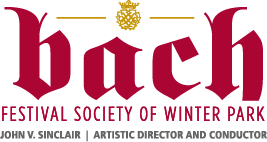Musical Moments #29
“I was cut off from the world. There was no one to confuse or torment me, and I was forced to become original.”
Joseph Haydn
Creation
—Franz Joseph Haydn (1732-1809)
When presenting a piece of music, it seems a bit like introducing an acquaintance, but in the case of Joseph Haydn’s Creation, this is an introduction to a cherished friend. Today we offer the first in a number of selections from this masterwork in the weeks follow.
Joseph Haydn spent the vast majority of his career working for the wealthy Prince Paul Anton Esterhazy who had given Haydn a great deal of freedom in composing and managing the musical activities for the music-loving Esterhazy family. Upon his retirement with a generous pension, Haydn took advantage of his notoriety and traveled to London at the invitation of the musical impresario J.P. Salomon who promoted and conducted concerts of Haydn’s music.
From this past fall’s performance of Creation, we offer program notes written by friend and Emeritus colleague Dr. Edmund LeRoy.
“From that sojourn came his last twelve magnificent symphonies and a great deal of money. During his stay, Haydn also heard for the first time the oratorios of G.F. Handel, whose works were held in reverence by the English, then as now. He was stunned at the power of those splendid choruses that play such a vital role in Messiah, Israel in Egypt, and others. Haydn knew the Viennese approach to the oratorio, an old-fashioned Italian or Latin affair that people tolerated during the somber weeks of Lent when opera was forbidden. After hearing Handel, Haydn longed to exercise his own creative spirit in the composition of a Handelian oratorio.”
“The Creation is in three parts, each of which closes with a magnificent chorus. The first two parts are concerned with the creation of the world, and the third ushers the audience into the Garden of Eden where we hear Adam and Eve singing to each other about their new world, with commentaries by the chorus. One of the most astonishing musical moments of all time occurs at the very beginning. The “overture” is a musical re-creation of the chaos that was present before the earth took form. Haydn’s brilliance shines as the orchestra whirls through key after key, never settling into a cadence. ……Listen as the angel Raphael describes the Genesis account of the separation of light from darkness. And then fasten your seatbelts for the chorus’ announcement of the creation of light on the greatest C‑major chord ever written.”
Our offering today includes the second half of the overture with most of the first three days of creation, ending with the chorus “Awake the Harp.” The guest soloists, joined by the Bach Choir and Orchestra, are bass-baritone Kevin Deas, tenor Anthony Ciaramitaro, and soprano Clara Rottsolk. We are especially proud to state that Anthony is a Rollins alum.
This “Musical Moment” is a bit longer but well worth the journey. I hope it whets your appetite for more of this incomparable choral masterwork.
—John V. Sinclair
“His enormous output is full of novelties and surprises. I would even say that he (Haydn) is more surprising than Beethoven.”
Pablo Casals
Listen on YouTube
